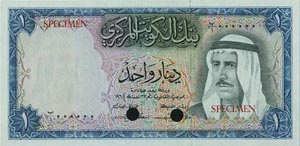Embassyofkuwait.org
This is Not the official website of the Embassy of Kuwait Howerver; This site helps to expedite the legalization and certification of documents from the Embassy of Kuwait in Washington DC
Kuwait Economy
 Kuwait has a GDP (PPP) of US$138.6 billion and a per capita income of US$60,800, making it the 5th richest country in the world. Kuwait's human development index (HDI) stands at 0.912, the second highest in Middle East after Israel, and the highest in the Arab world. With a GDP growth rate of 5.7%, Kuwait has one of the fastest growing economies in the region.
Kuwait has a GDP (PPP) of US$138.6 billion and a per capita income of US$60,800, making it the 5th richest country in the world. Kuwait's human development index (HDI) stands at 0.912, the second highest in Middle East after Israel, and the highest in the Arab world. With a GDP growth rate of 5.7%, Kuwait has one of the fastest growing economies in the region.
According to the 2008 Index of Economic Freedom, Kuwait has the second-most free economy in the Middle East. In March 2007, Kuwait's foreign exchange reserves stood at US$213 billion. The Kuwait Stock Exchange, which has about 200 firms listed, is the second-largest stock exchange in the Arab world with a total market capitalization of US$235 billion. In 2007, the Kuwaiti government posted a budget surplus of US$43 billion.
Kuwait has a proven crude oil reserves of 104 billion barrels (15 km³), estimated to be 10% of the world's reserves. According to the Kuwaiti constitution, all natural resources in the country and associated revenues are government property. Being a tax-free country, Kuwait's oil industry accounts for 80% of government revenue. Petroleum and petrochemicals accounts for nearly half of GDP and 95% of export revenues. Increase in oil prices since 2003 resulted in a surge in Kuwait's economy.
Kuwait's current oil production of 2.8 million bpd is expected to increase to 4 million bpd by 2020. To realize this production target, Kuwait Petroleum Corporation plans to spend US$51 billion between 2007 to 2012 to upgrade and expand the country's existing refineries. However, the country's economy was badly affected by the global financial crisis of 2008. In 2009, the Central Bank of Kuwait devised a US$5.15 billion stimulus package to help boost the economy.
Other major industries include shipping, construction, cement, water desalination, construction materials and financial services. Kuwait has a well developed banking system and several banks in the country date back to the time before oil was discovered. Founded in 1952, the National Bank of Kuwait is the largest bank in the country and one of the largest in the Arab world. Other prominent financial institutions based in Kuwait include the Gulf Bank of Kuwait and Burgan Bank, which is named after the largest oilfield in the country.
 Kuwait's climate limits agricultural development. Consequently, with the exception of fish, it depends almost wholly on food imports. About 75% of potable water must be distilled or imported. The government is keen on decreasing Kuwait's dependence on oil to fuel its economy by transforming it into a regional trading and tourism hub. The planned US$77 billion City of Silk is the largest real estate development project in the Middle East. The Central Bank issues Kuwait’s currency, the Kuwaiti dinar. In December 2007, the dinar is the highest-valued currency unit in the world.
Kuwait's climate limits agricultural development. Consequently, with the exception of fish, it depends almost wholly on food imports. About 75% of potable water must be distilled or imported. The government is keen on decreasing Kuwait's dependence on oil to fuel its economy by transforming it into a regional trading and tourism hub. The planned US$77 billion City of Silk is the largest real estate development project in the Middle East. The Central Bank issues Kuwait’s currency, the Kuwaiti dinar. In December 2007, the dinar is the highest-valued currency unit in the world.
In 2007, estimated exports stood at US$59.97 billion and imports were around US$17.74 billion. Petroleum, petrochemical products, fertilizers and financial services are major export commodities. Kuwait imports a wide range of products ranging from food products and textiles to machinery. Kuwait's most important trading partners are Japan, United States, India, South Korea, Singapore, China, European Union and Saudi Arabia. Japan is the largest customer of Kuwaiti oil followed by India, Singapore and South Korea.
Documents Certification
- Document Authentication
- Commercial Documents
- Personal Documents
- Federal Documents
- Notarized Documents
